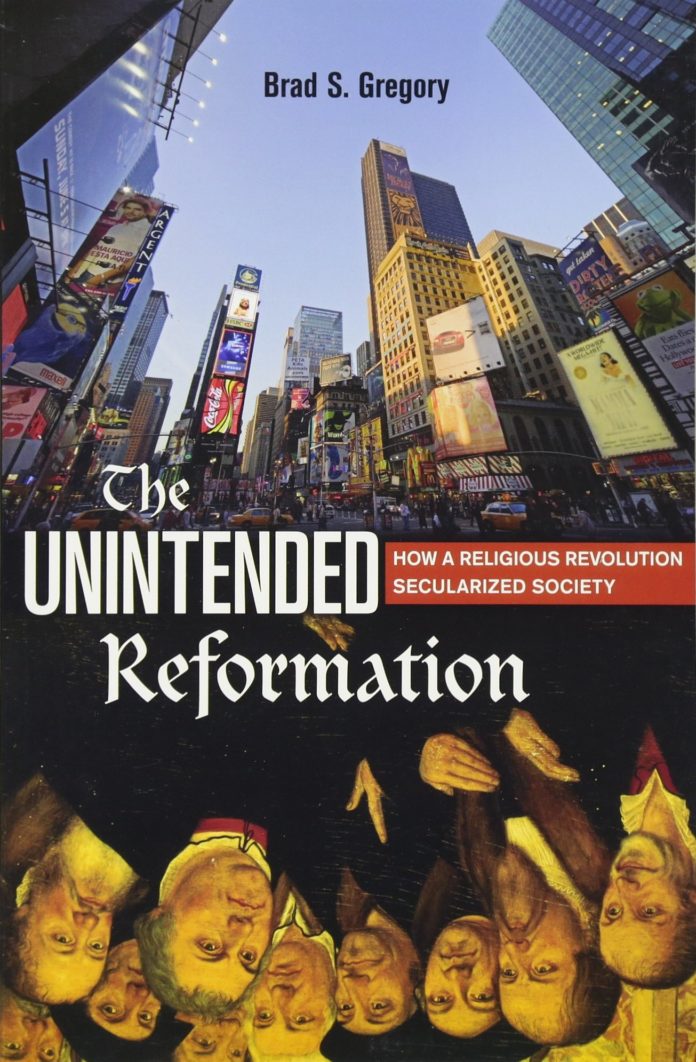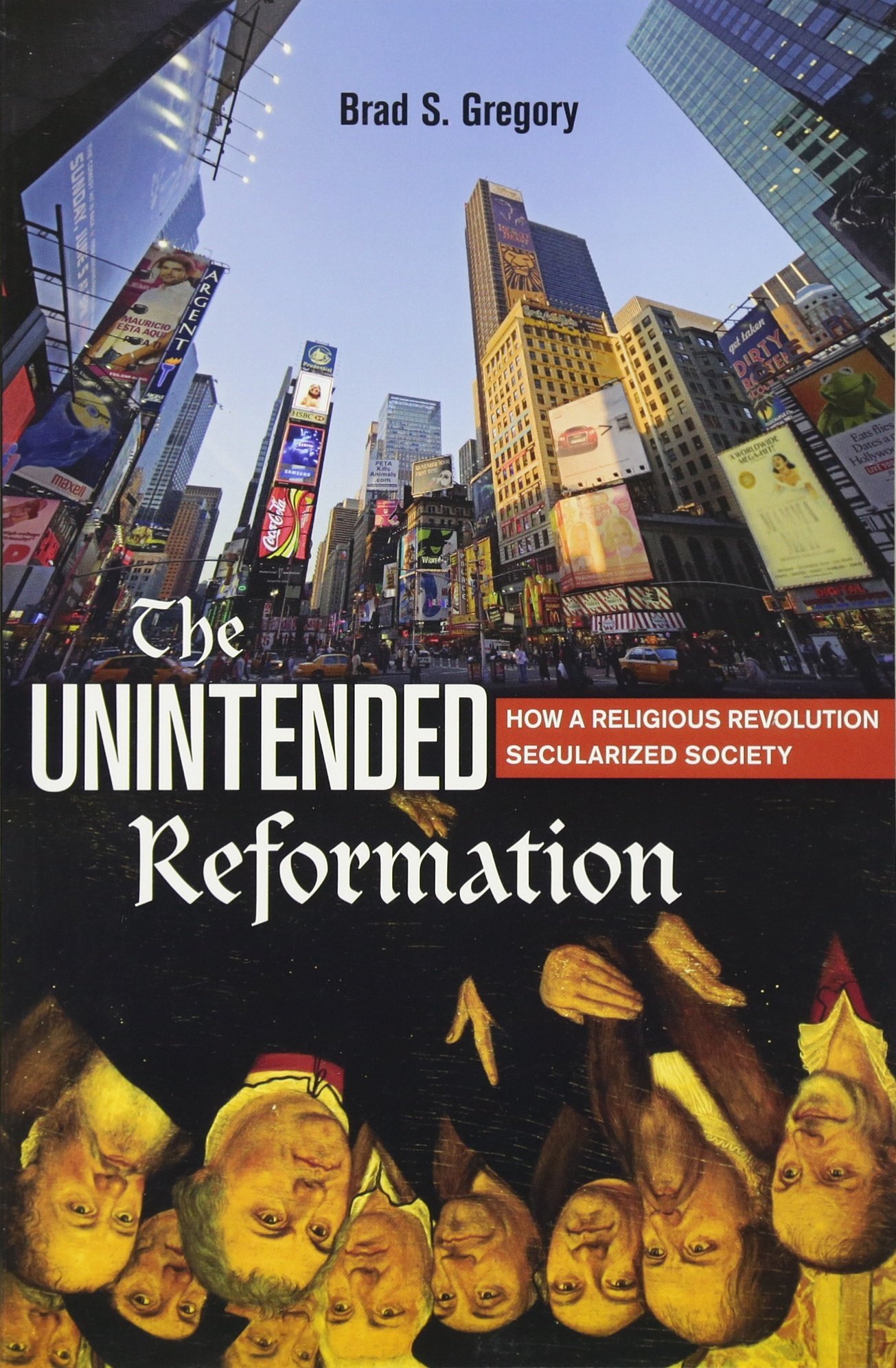Last month I found out about a book entitled The Unintended Reformation by Brad S. Gregory, who is a Professor at the University of Notre Dame. I have been saying since 2014 that Liberalism has its origins in the Reformation of the early 1500’s. Professor Gregory wrote an entire book on it back in 2012, however his idea is even broader, his argument is that the modern world has its origins in the Reformation and to understand the modern world you must understand how it got from there to here.
Interestingly this is making a similar argument to the one that Patrick Deneen makes in his book Why Liberalism Failed. Deneen is also a professor at Notre Dame. This book is quite controversial and the reviews that I read either said this is ground breaking, or this has all been argued before and it’s wrong. I must say that it is an academic book published by The Belknap Press of Harvard University Press and amazingly it was an ABC Australia best book on religion and ethics of the year. Not something I was expecting.
The book is as I said academic, it is not an easy read, it is intended for an academic audience. Which makes it slow to read and I find that if my attention drifts I cannot just move on, I must reread it, sometimes I have to reread it even when I am paying attention. Which is why I intend to review each chapter separately.
The first chapter ‘Excluding God’ is about how the Reformation started as a dispute about the right way to worship God and ended up forcing such a division into Christianity that intellectuals started to exclude God and then to denying that God existed. There is the idea that science and religion are enemies and incompatible. I’m sure you’ve heard this argument, you might even have made it. But all Western intellectual provenance comes through Christianity, all modern science was once Christian science. The ancient Greeks were forgotten for centuries after the fall of Rome. The Dark Ages was a real time and there is a reason it is referred to as such. When that knowledge was rediscovered it was rediscovered and interpreted by one of the great Christian inventions of the Middle Ages, the University.
Universities were religious institutions at that time, the main topic being Theology and every other subject being secondary. But the ancient thinkers were not ignored, nor were they discarded. Instead they sought to work out how these ideas fit into a Christian world. That continued for centuries until the Reformation slowly made Christianity such a toxic subject that it would be increasingly excluded from academic writing. This idea then led to the idea that the reason they were separate was because they were enemies. In time that led to the idea that you could believe in God or in science, but not both.
However throughout this time Christian churches continued to run Universities and to do research on scientific subjects. While this is not in the book, Charles Darwin’s book The Origin of Species was published in 1859, and the Catholic Church accepted his arguments in 1860. But the idea continues that science and religion are incompatible.
Gregory says that it is because of a Univocal view of the world. Univocal means ‘unambiguous, a word that only has one meaning’. Increasingly within science there arose an idea that they knew the answers to how the world worked and that God had no place in that world or in any understanding of that world. Gregory furthers states that this idea comes from a theological argument which traditional Christianity had always rejected. In traditional Christian theology God is outside of the universe that he created, he can be in all places at all times because everything is his creation. But at one and the same time he is outside of his creation. To put it another way God existed before he created our universe.
Science however puts God at the top of creation, in other words he is part of his own creation. If God is outside of creation then he is mysterious because you cannot even comprehend such a being. However if God is at the top of his creation then he can be studied because he is simply a more powerful version of you and I. As most scientists do not study theology they are not even aware that that is how they view the subject. So God is no different from studying planets, man or plankton, and as God is so resistant to study that leads directly to the idea that he cannot be studied because he does not exist.
To my mind that makes sense, it does explain why this idea has taken hold and why discussing this idea with people of a scientific mind is so often fruitless and pointless. For science, mysteries only exist to be solved.
Originally published at Upon Hope. You can find Mark’s Subscribestar here.











